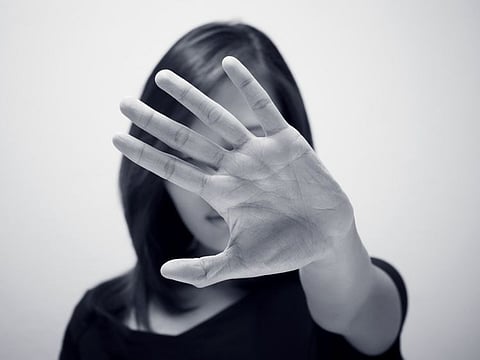The life-changing power of ‘No’
The balance lies somewhere between kindness to others, and kindness to oneself

Non, nein, nem, nyet, not on your nelly, nope. According to my parents, my very first word as a tender infant was “no”. I began as I meant to go on, claiming the title of Mademoiselle Non long before Antony Dowell, the artistic director of the Royal Ballet, bestowed that epithet on his refusenik star, Sylvie Guillem.
It didn’t take long for me to discover that being Mademoiselle Non was a life choice with consequences. You will not be chosen as house prefect, head girl, or captain of the netball team. You won’t even get to hand out the crayons at colouring time — because when the teacher asked if you’d like to, you said “No”.
By saying no, you invite judgements of timidity, ungenerousness, aloofness and a whole catalogue of other unappetising traits. The Unipart manufacturing company once ran an advertising campaign in which a series of increasingly exotic inquiries (“Can you show me where the gasket goes on my thermostat? Have you got a whatsit to fit on my dynamo?”) all received the same reassuring reply: “The answer is yes. Now what’s the question?”
Flip the affirmative to a negative and you get something that sounds more like a slogan for the delivery companies that leave a card saying you were out when they called, and inviting you to collect your goods from their depot on a bleak industrial estate, with a “helpline” that goes unanswered for all eternity. Can we do it? No we can’t. Still, if I were offered the chance to reinvent myself as Mademoiselle Oui, I don’t think I would take it. On the whole, it strikes me that the outcomes of my naysaying have been quite positive. My few regrets have more to do with moments of impulsive acquiescence than the road not taken. And I am not alone in embracing the life-changing power of no.
Learning to decline
The entrepreneur Luke Johnson, whose lengthy CV includes a bewildering list of interests, from artisan bakeries to cancer research, recently made an elegant case for the importance of learning to decline, arguing that while the financial cost of saying yes to a bad deal can be high, the price of not knowing how to frame a refusal can be even more damaging in other, less quantifiable ways.
Time, he points out, is our most precious resource. But our own time is something that women in particular have often been bad at valuing. Our children, our friends, our parents, our boss, the PTA and the Neighbourhood Watch all ask us to spare them a little time, and without hesitation we agree, because saying yes is the definition of a good person.
It is also the definition of a person who fears the consequences of saying no. Will a refusal mean that we lose our job? Will we (or, worse, our children) be ostracised in the playground? What if our precious friendships grow cold?
A strict cost-benefit analysis is not the secret of a good life. Nor, whatever the Stoics thought, is the principle that virtue is its own reward. Seneca himself might have revised his position on the acceptance of adversity if he had come home from a hard day’s thinking to find he had agreed to produce a batch of brownies for the school bake sale, while supervising homework, talking a friend through a harrowing relationship break-up and casting an eye over the sales figures for the next day’s meeting.
The balance lies somewhere between kindness to others, and kindness to oneself. And the first step is learning to say No.
Jane Shilling is a columnist who writes on books


